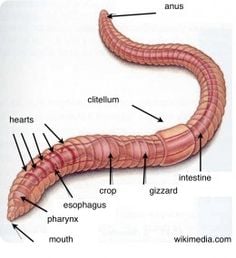Red Wiggler Worms - Important for Healthy And Balanced and Productive Gardens
Wiki Article
Red Wiggler Worms Demystified: Unlocking the Keys of Vermiculture for Greener Living and Nutrient-Rich Dirt
In the world of lasting practices for enhancing soil quality and promoting eco-conscious living, red wiggler worms play an essential yet typically neglected duty. Red Wiggler Worms. Comprehending the intricacies of caring for these worms, enhancing their setting, and using their castings can lead to a greener way of living and healthier soil for plants to prosper.The Role of Red Wiggler Worms
Red Wiggler worms play a crucial function in composting systems by efficiently damaging down natural matter into nutrient-rich spreadings. These ravenous eaters take in a variety of natural materials, such as kitchen area scraps, backyard waste, and paper items. As they feed, the worms' digestive processes damage down the raw material right into a fine, dark, and nutrient-dense material called worm spreadings or vermicompost.The castings generated by Red Wiggler worms are highly valuable for dirt wellness and plant growth. They are abundant in crucial nutrients like nitrogen, phosphorus, and potassium, which are crucial for supporting healthy and balanced plant development. Furthermore, worm spreadings contain helpful microbes and enzymes that assist improve soil framework, boost water retention, and boost nutrient uptake by plants.
Advantages of Vermicomposting

It boosts soil framework, boosts soil oygenation, and increases soil wetness retention. Vermicompost likewise improves the dirt with vital nutrients like potassium, phosphorus, and nitrogen, promoting plant growth and overall dirt fertility.
In addition, vermicomposting assistances lasting horticulture techniques by offering a all-natural and chemical-free choice to synthetic plant foods. Red Wiggler Worms. This eco-friendly strategy not just enhances the soil but likewise helps in reducing dependence on unsafe chemicals, advertising a greener and a lot more sustainable method of gardening
Establishing Up a Worm Container
When developing a worm container for vermicomposting, proper setup is crucial to ensure the success of the composting process. The initial step in setting up a worm container is choosing a suitable container. This can be a plastic bin or wood box that supplies adequate area for the worms to move and has appropriate drainage openings to stop waterlogging. Next off, a bedding product such as shredded paper, cardboard, or coconut coir must be contributed to the container. This bedding offers a comfortable setting for the worms and assists keep moisture levels.After including the bed linen, present the red wiggler worms to the bin. The worms should after that be given with food scraps such as fruit and veggie peels, coffee grounds, and eggshells.
Frequently monitor the wetness degrees and temperature level in the worm bin to ensure optimal problems for the worms. With correct setup and maintenance, the worm bin will efficiently convert natural waste right into nutrient-rich garden compost for your plants and yard.
Harvesting Worm Spreadings
To successfully collect nutrient-rich worm castings from your vermicomposting system, an organized harvesting approach is necessary. When it comes time to collect the worm castings, there are a couple of vital actions to follow to guarantee an effective procedure.
Troubleshooting Common Issues
Identifying and resolving common challenges that may arise during the vermicomposting procedure is important for maintaining a healthy and efficient worm container. Adding excess food scraps can lead to a build-up of dampness and level of acidity in the worm bin, possibly harming the worms. One more concern is undesirable smells originating from the worm container.
In addition, if the worm population is decreasing or the worms appear harmful, it can be as a result of environmental stress factors such as severe temperature levels or pH levels. Checking these factors and making necessary adjustments is vital for the wellness of the worms. By fixing these typical concerns without delay, vermicomposters can ensure a effective and smooth vermicomposting process while keeping a prospering worm populace.

Final Thought
Finally, red wiggler worms play an important role in vermiculture by damaging down raw material into nutrient-rich dirt. The advantages of vermiculture consist of greener living and boosted soil high quality. Setting up a worm container is vital for successful vermiculture, and collecting worm castings offers valuable compost for gardening. By comprehending and repairing usual concerns, people can open the keys of vermiculture for lasting living and healthier dirt.As they feed, the worms' digestive processes break down the organic matter right into a fine, dark, and nutrient-dense material recognized as worm castings or investigate this site vermicompost.
The castings generated by Red Wiggler worms are very valuable for soil health and plant growth. Including excess food scraps can lead to a buildup of wetness and level of acidity in the worm bin, possibly hurting browse around here the worms.Furthermore, if the worm population is decreasing or the worms show up unhealthy, it can be due to ecological stressors such as severe temperatures or pH degrees. Establishing up a worm bin is crucial for effective vermiculture, and harvesting worm castings provides beneficial garden compost for horticulture.
Report this wiki page